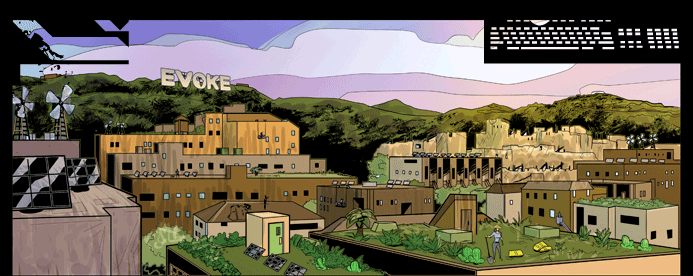A crash course in changing the world.
Urban Resilience

// 007 URBAN RESILIENCE
Today, half of the world’s population lives in cities. By 2050, the UN estimates, humanity may well be 80 percent urban.
What will life on Earth be like as more and more of us become urban? Environmental science writer Maywa Montenegro predicts:
"Volatility is the watchword of the day for cities. At the outset of 2010, some things are certain: economies will grow, greenhouse gases will acc**ulate, more people will be born than will die across the planet. But how exactly consumption, climate, population, and other factors will interact in urban centers is anyone’s guess. In this context, when risk and uncertainty are inevitable, providing the capacity to absorb change—building for resilience—is the only rational response."
Building for resilience means developing our adaptive capacity to deal with change and continue to develop.
Your mission this week is to develop your resilience superpowers -- and prepare for the volatile future of urban life.
Discover more:
The Resilience Dictionary
The Resilience Alliance
Center for Resilient Cities
What is resilience science?
Resilience science focuses on tipping points. It looks at gradual stresses, such as climate change, as well as chance events—things like storms, fires, even stock market crashes—that can tip a system into another equilibrium state from which it is difficult, if not impossible, to recover.
How much shock can a system absorb before it transforms into something fundamentally different? That, in a nutshell, is the essence of resilience.
This concept of resilience upends old ideas about “sustainability”: Instead of embracing stasis, resilience emphasizes volatility, flexibility, and de-centralization. Change, from a resilience perspective, has the potential to create opportunity for development, novelty, and innovation.
-- From "Urban Resilience"
What builds up our urban resilience?
Social trust: Willingness to share information and resources
Civic engagement: solutions designed and carried out by the citizens
Ecosystem services: community gardens, green roofs, urban parks and forests
Redundancy: multiple local sources for food, water, energy
Comment
© 2024 Created by Alchemy.
Powered by
![]()









You need to be a member of Urgent Evoke to add comments!
Join Urgent Evoke